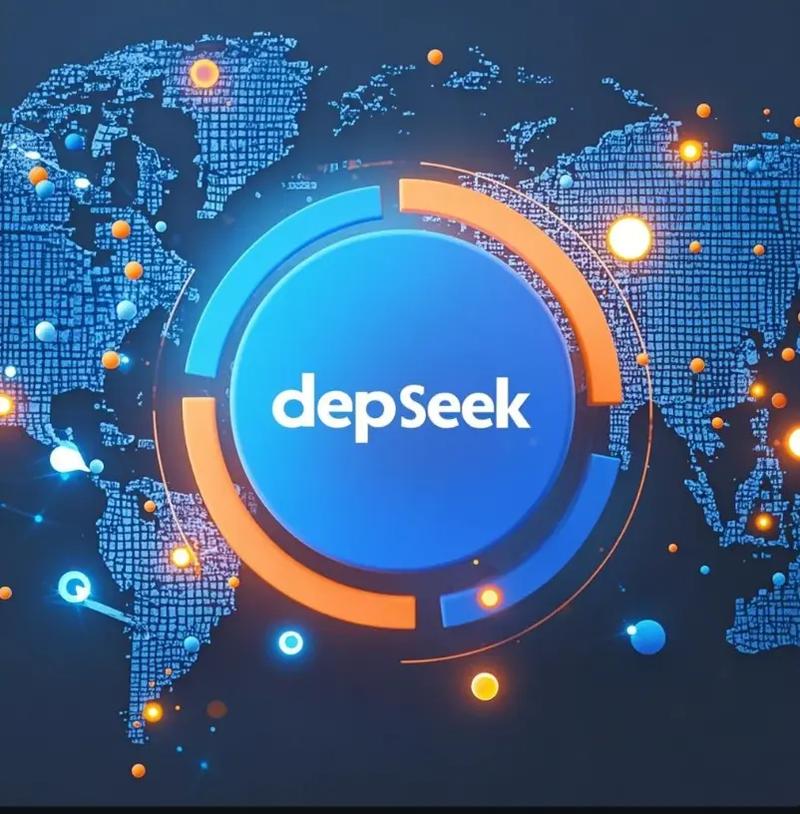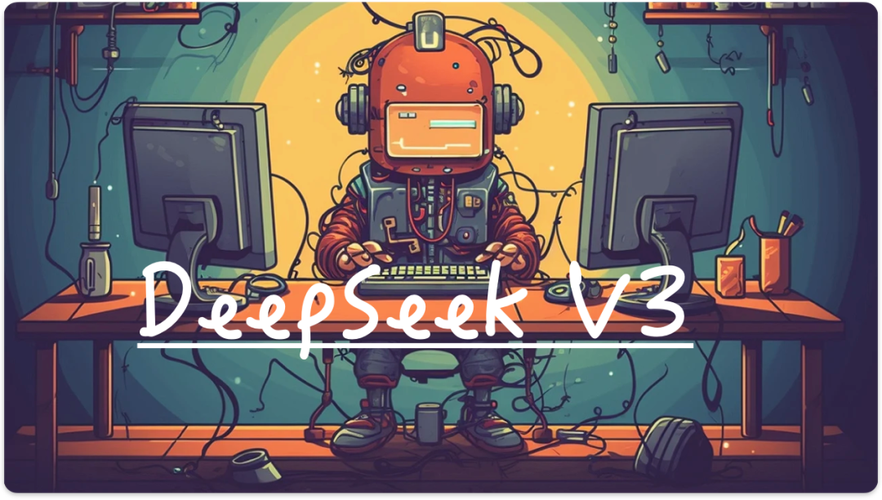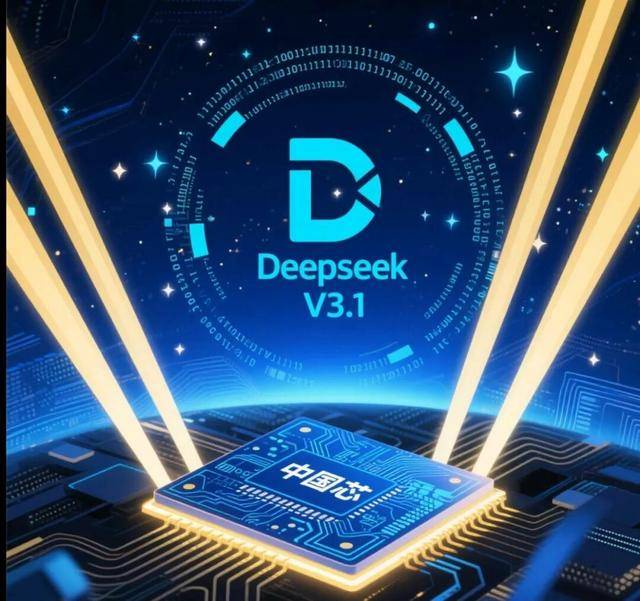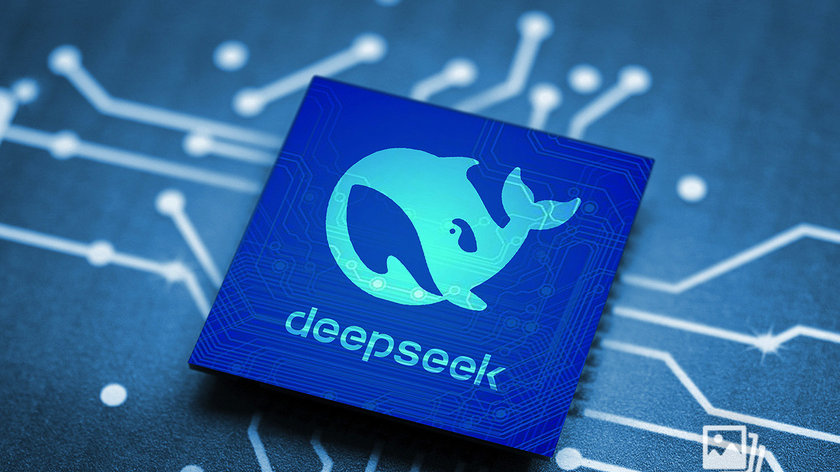DeepSeek V3: A Game-Changing Breakthrough in AI Efficiency
Introduction
In recent years, the development of large language models (LLMs) has come at the cost of astronomical compute resources and skyrocketing financial investment. Models like GPT-4, Claude 3.5, and others have demonstrated incredible capabilities—but with considerable limitations when it comes to accessibility, affordability, and environmental sustainability.
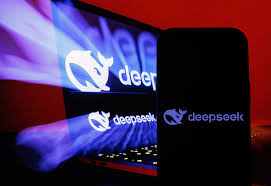
Enter DeepSeek V3, a transformative leap in AI development that challenges the industry’s assumptions about what it takes to build and operate a state-of-the-art language model. With a groundbreaking architecture and an uncompromising focus on efficiency without sacrificing performance, DeepSeek V3 is proving that massive AI power no longer requires massive costs.
Rethinking Scale: 671 Billion Parameters with Intelligence
At first glance, DeepSeek V3’s 671 billion parameters might suggest an ultra-large, resource-intensive model on par with the largest closed-source giants. However, the genius of DeepSeek V3 lies not in the size itself, but in how it's used.
Using a Mixture-of-Experts (MoE) architecture, DeepSeek V3 intelligently activates only 37 billion parameters per inference, which is just 5.5% of the full model. This means:
Less compute per query
Lower GPU memory requirements
Faster inference
Near-equal or better performance compared to fully dense models
This architectural philosophy represents a paradigm shift in LLM design—prioritizing selective computation over brute-force scaling.
Breaking Cost Barriers in AI Training
The cost efficiency of DeepSeek V3 is perhaps its most disruptive feature. While legacy models often require tens or even hundreds of millions of dollars in training resources, DeepSeek V3 achieved its capabilities with the following:
| Metric | Value |
|---|---|
| Training Cost | ~$5.6 million |
| Training Duration | 57 days |
| Compute Hours | ~2.788 million H800 GPU hours |
In comparison to traditional dense LLMs, DeepSeek V3’s training cycle was:
Faster by several weeks or months
Cheaper by 5–10x
Less resource-intensive, helping reduce the model’s carbon footprint
These gains are not just academic—they directly translate to lower prices for developers and businesses using DeepSeek V3 through its API.
Key Architectural Innovations
1. Smart Parameter Activation (Mixture-of-Experts)
Mixture-of-Experts (MoE) is the foundation of DeepSeek V3’s efficiency. Instead of activating the entire model for every task, it activates a small, specialized subset of parameters depending on the input.
Benefits:
Customized processing for different types of queries
Massive efficiency gains at inference time
Scalability without performance degradation
Improved parallelism across distributed hardware
In practice, this means DeepSeek V3 behaves like dozens of smaller expert models working in unison, each contributing when needed.
2. Multi-head Latent Attention (MLA)
DeepSeek V3 introduces Multi-head Latent Attention (MLA) to reduce the overhead of standard attention mechanisms.
How MLA Works:
Compresses input representations using low-rank approximations
Performs attention calculations in a latent space
Decompresses for final output generation
Results:
Lower memory usage
Faster inference, even with long input sequences
Improved contextual accuracy, particularly in large-context tasks
This makes DeepSeek V3 ideal for code generation, document summarization, and multi-turn conversations, where long-term dependencies are critical.
3. Auxiliary-Loss-Free Load Balancing
Traditional MoE systems struggle with uneven expert usage, leading to under-utilization or performance drops. DeepSeek V3 innovates by using auxiliary-loss-free gating mechanisms to ensure balanced load across experts.
Outcomes:
Even distribution of training and inference workloads
Greater model stability
No added penalties in the loss function that could hinder optimization
This enables DeepSeek to scale without introducing unwanted side effects in training performance.
4. Multi-token Prediction Objective
Unlike the traditional approach of predicting one token at a time, DeepSeek V3 introduces a multi-token prediction objective:
Predicts multiple tokens in parallel
Shares gradients across overlapping token positions
Improves generation coherence and training efficiency
This leads to faster generation speeds and higher-quality output, especially in long-form tasks.
Real-World Performance Metrics
Despite its focus on cost savings and efficiency, DeepSeek V3 is no slouch when it comes to actual task performance. The model consistently achieves state-of-the-art results across a variety of competitive benchmarks.
| Task | Score | Description |
|---|---|---|
| MMLU | 87.1% | General knowledge and reasoning |
| BBH | 87.5% | Chain-of-thought and multi-step reasoning |
| DROP | 89.0% | Discrete reasoning over paragraphs |
| HumanEval | 65.2% | Code writing and logic |
| MBPP | 75.4% | Python problems from beginners |
| GSM8K | 89.3% | Grade school math and logic problems |
These benchmarks show that DeepSeek V3 is highly competitive with the best models in the world—while remaining significantly cheaper to run.
Business Applications: Performance Meets Practicality
The efficiency and pricing of DeepSeek V3 open the door for wide-scale use in real-world scenarios:
1. Enterprise Applications
Knowledge Base Assistants
Legal and Financial Document Analysis
Business Report Generation
Data Extraction from Structured and Unstructured Inputs
2. Software Development
Intelligent code autocompletion
Cross-language code translation
Debugging assistance
3. Content Creation
Long-form article writing
SEO-optimized copy generation
Multi-lingual translation and summarization
4. Scientific Research
Hypothesis generation
Literature analysis
Modeling and simulation insights
API Access and Developer Experience
DeepSeek V3 is not just technically advanced—it’s designed to be developer-friendly.
API Features
RESTful endpoints with fast response times
Token-based pricing (transparent and fair)
Support for prompt caching (massive cost savings)
128K token context window for ultra-long input/output handling
Developer Support
SDKs for Python, JavaScript, Go
Interactive playground for prompt testing
GitHub integrations and community examples
Cost Analysis: A New Era of AI Affordability
Let’s break down a basic usage scenario:
| Use Case | Traditional Model (GPT-4-level) | DeepSeek V3 | Savings |
|---|---|---|---|
| 1M tokens/month | ~$4,000–$5,000 | ~$85 | ~98% |
| 100K tokens/day | ~$450/month | ~$8.5 | ~98% |
| Academic usage | Often prohibitive | Now viable | Massiv eSuch drastic reductions mean startups, students, and small businesses can run powerful LLM workflows for the price of a coffee. |
Environmental Sustainability
AI compute demands are under increasing scrutiny for their environmental impact. DeepSeek V3’s architecture:
Reduces power draw by limiting active parameters
Minimizes unnecessary GPU cycles
Offers one of the lowest carbon footprints per token among large models
Final Thoughts: A Paradigm Shift in AI Development
DeepSeek V3 marks a milestone in AI evolution—not because it’s the biggest, but because it’s the smartest use of size, architecture, and cost.
It challenges conventional thinking:
“Why activate 100% of a model when 5% gets the job done—faster, cheaper, and greener?”
Whether you're building a chatbot, automating enterprise workflows, conducting academic research, or just experimenting with the future of AI, DeepSeek V3 offers world-class capabilities at a fraction of the cost.
Getting Started
Interested in testing or deploying DeepSeek V3? Here’s how to begin:
Register for API access on the official DeepSeek platform
Read the documentation and explore sample prompts
Run a pilot project (the 45-day promotional pricing makes this risk-free)
Scale with confidence, knowing you're using one of the most efficient LLMs ever built
Summary
| Feature | DeepSeek V3 |
|---|---|
| Parameters | 671B total / 37B active per token |
| Architecture | Mixture-of-Experts (MoE) |
| Context Window | 128,000 tokens |
| Training Cost | ~$5.6 million |
| Performance | SOTA on multiple NLP & coding benchmarks |
| API Pricing | ~$0.07–$1.12 per million tokens |
| Sustainability | Energy-efficient, low resource consumption |
| Developer Experience | Easy API, full documentation, fast adoption |
DeepSeek V3 isn’t just a model.
It’s a movement—toward smarter, leaner, more accessible AI for all.
